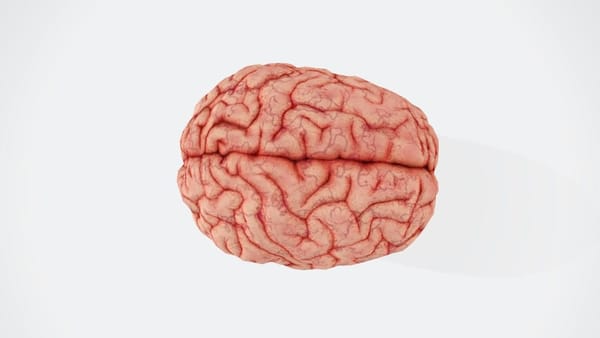Dementia, a condition that affects millions of people worldwide, has long been a subject of intense medical research and public health concern. A recent study has shed light on an intriguing aspect of dementia diagnosis: its connection to geographic location. This discovery could have far-reaching implications for how we approach dementia care and diagnosis across different regions.
Key Takeaways
- Dementia diagnosis rates vary significantly depending on geographic location.
- Factors such as healthcare access, cultural attitudes, and local medical practices influence diagnosis rates.
- Urban areas tend to have lower rates of dementia diagnosis compared to rural regions.
- The study highlights the need for standardized diagnostic practices and improved healthcare access across all areas.
- Understanding these disparities could lead to more targeted interventions and improved dementia care nationwide.
The Geographic Link to Dementia Diagnosis
Understanding the Study
A groundbreaking study has revealed a surprising connection between where people live and their likelihood of receiving a dementia diagnosis[3]. This research, focusing on what experts call "diagnostic intensity," shows that even after accounting for various factors like age and overall health, significant differences in diagnosis rates persist across different regions[3].
Urban vs. Rural Disparities
One of the most striking findings is the difference between urban and rural areas. The study found that older adults living in large central metropolitan areas had lower rates of diagnosed dementia (3.3%) compared to those in medium and small metropolitan areas, as well as rural regions[7]. This disparity raises important questions about healthcare access and diagnostic practices in different settings.
Factors Influencing Diagnosis Rates
Several factors contribute to these geographic variations:
- Healthcare Access: Rural areas often have fewer specialized medical facilities and healthcare professionals, potentially leading to fewer diagnoses[5].
- Cultural Attitudes: Different regions may have varying cultural perspectives on aging and cognitive decline, affecting how and when people seek medical help[5].
- Local Medical Practices: Diagnostic approaches and thresholds for dementia diagnosis may differ between regions[4].
- Socioeconomic Factors: Areas with higher poverty rates or lower education levels might see different patterns in healthcare-seeking behavior[2].
Regional Variations: A Closer Look
The study's findings reveal significant differences not just between urban and rural areas, but also among different regions within countries. For instance, in Sweden, the prevalence of dementia diagnosis was found to be 3.8% in the Stockholm Region, slightly increasing to 4.1% when including primary care diagnoses[4]. Such variations within a single country underscore the complexity of this issue.
Implications for Healthcare and Policy
Improving Diagnostic Consistency
The observed geographical variations in dementia diagnoses and treatment indicate inequality in access to appropriate diagnostic evaluation and care[5]. This highlights the need for more standardized diagnostic practices across different regions to ensure that all individuals, regardless of location, receive accurate and timely diagnoses.
Addressing Healthcare Disparities
The study's findings emphasize the importance of addressing healthcare disparities, particularly in rural and underserved areas. Improving access to specialized care and diagnostic tools in these regions could help bridge the gap in dementia diagnosis rates[6].
Tailoring Interventions
Understanding these geographic disparities allows healthcare providers and policymakers to tailor interventions more effectively. For example, areas with lower diagnosis rates might benefit from increased awareness campaigns or mobile health clinics specializing in cognitive health assessments.
The Role of Technology in Bridging the Gap
Telemedicine and Remote Diagnostics
Advancements in telemedicine could play a crucial role in addressing geographic disparities. Remote consultations with specialists and digital cognitive assessments could make dementia diagnosis more accessible in rural or underserved areas.
Data-Driven Approaches
Leveraging big data and artificial intelligence could help identify patterns in dementia diagnosis across different regions, potentially leading to more targeted and effective interventions.
Challenges and Future Directions
Overcoming Cultural Barriers
Addressing cultural differences in perceptions of aging and cognitive decline is crucial. Public health campaigns tailored to specific regional contexts could help increase awareness and reduce stigma associated with dementia.
Balancing Standardization and Personalization
While striving for more consistent diagnostic practices across regions, it's important to maintain a personalized approach to patient care. Each individual's unique circumstances and needs must be considered alongside broader geographic trends.
Continued Research
Further studies are needed to fully understand the complex relationship between geographic location and dementia diagnosis. Longitudinal studies tracking diagnosis rates over time in different regions could provide valuable insights into the effectiveness of interventions.
Conclusion
The discovery of geographic disparities in dementia diagnosis rates opens up new avenues for improving dementia care and public health strategies. By understanding and addressing these regional differences, we can work towards more equitable and effective dementia diagnosis and treatment across all communities.
As we move forward, it's crucial that healthcare providers, policymakers, and researchers collaborate to develop comprehensive strategies that address these disparities. By doing so, we can ensure that all individuals, regardless of where they live, have access to timely and accurate dementia diagnosis and care.
This study not only highlights an important aspect of dementia care but also serves as a reminder of the complex interplay between geography, healthcare access, and health outcomes. As our understanding of these relationships deepens, we can hope for more targeted, effective approaches to managing dementia and improving the lives of those affected by this condition.












Member discussion